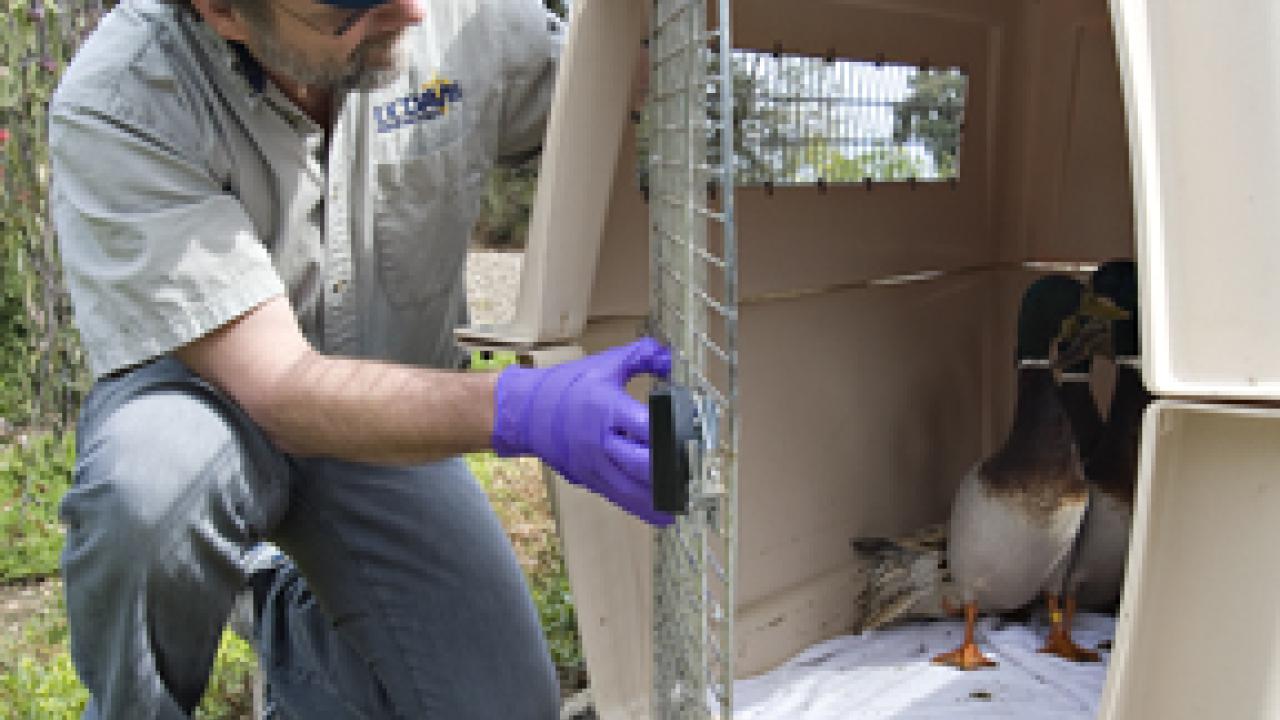UC Davis wildlife researchers are catching ducks in the arboretum and carrying them away. Do not be alarmed: The ducks are being returned and released at the sites where they were caught within about two hours, no worse for the wear.
The researchers are examining the mallards’ health and attaching identification bands as part of a long-term study of waterfowl and ecosystem health.
The research, funded largely by the National Institutes of Health, is intended to help human and wildlife health specialists better understand the flow of disease-causing organisms through wild and urban ecosystems. This understanding should help improve the health of the ducks, other wild and domestic animals, and people.
Veterinarian Walter Boyce, co-director of the UC Davis Wildlife Health Center, leads the study. He is an expert on animal pathogens, particularly those carried by wildlife that can cause diseases in domestic animals and people.
The researchers are using grain to lure the ducks into traps or under nets, then putting the birds in waterfowl carriers, to be taken a short distance away for the examinations. Researchers are taking blood and fecal samples, weighing and measuring the birds, assessing their general health, and attaching leg bands from the U.S. Geological Survey’s Bird Banding Laboratory.
Fliers explaining the research are available from researchers in the aboretum, in the event passers-by have questions about what is going on. More information will be online soon: vetmed.ucdavis.edu/whc.
Media Resources
Dave Jones, Dateline, 530-752-6556, dljones@ucdavis.edu
